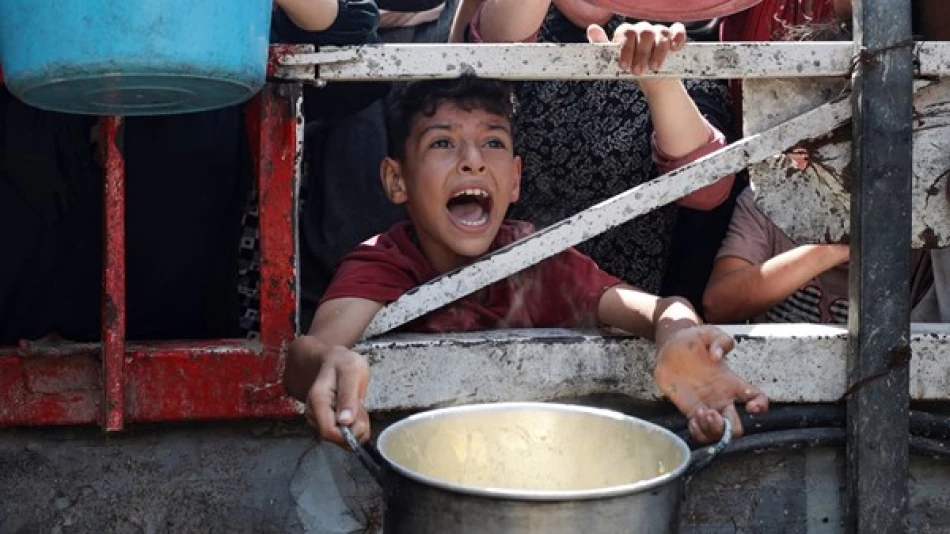
Unimaginable Human Tragedy Unfolding in Gaza, Germany Warns
Germany Demands Israel Address Gaza's "Unimaginable" Humanitarian Crisis as WHO Warns of Catastrophic Famine
German Foreign Minister Johann Wadephul has issued a stark call for Israel to allow "substantial improvement" in conditions for Gaza's population, describing the humanitarian situation as surpassing imagination. His intervention comes as the World Health Organization warns that Gaza has entered the most severe phase of famine classification, with thousands facing death by starvation.
Diplomatic Pressure Mounts on Israel
Speaking from Jerusalem during an official visit on Thursday, Wadephul painted a grim picture of daily life in Gaza. "Throughout the Gaza Strip, people suffer from hunger daily. Women, men, and children are killed in their desperate search for food. This is an absolutely unbearable situation that must change immediately," he declared.
The German minister's unusually direct language reflects growing international frustration with the humanitarian crisis. Germany, traditionally one of Israel's strongest European allies due to historical ties and Holocaust remembrance, rarely issues such pointed criticism of Israeli policy.
WHO Sounds Alarm on Catastrophic Food Crisis
The World Health Organization's Thursday statement confirmed Gaza has reached the highest level of food insecurity under the Integrated Food Security Phase Classification system. This classification, known as IPC Phase 5 or "Catastrophe," indicates that starvation, death, and destitution are evident among the population.
Children Face Immediate Death Risk
According to WHO data, Gaza residents are experiencing acute food shortages, with some going days without any sustenance. The organization reported that people are dying from severe weakness and organ failure, particularly children suffering from acute malnutrition who face imminent death without urgent treatment.
The IPC Phase 5 classification has historically been rare, previously applied to areas like South Sudan during its civil war and parts of Somalia during the 2011 famine that killed over 250,000 people.
International Response and Implications
Germany's intervention signals a potential shift in European diplomatic approaches to the Gaza crisis. Unlike previous conflicts where European criticism remained largely procedural, Wadephul's statement carries moral urgency that could influence broader EU policy discussions.
The timing of the German foreign minister's visit and public statements suggests coordinated international pressure. Similar humanitarian concerns have been raised by France and Norway in recent weeks, indicating a growing European consensus that current conditions in Gaza are unacceptable regardless of security considerations.
Historical Context of Famine Classifications
The WHO's famine classification system was developed after the 2005 Niger food crisis to provide early warning mechanisms for humanitarian disasters. Gaza's current classification puts it alongside the world's most severe humanitarian crises, a designation that typically triggers immediate international intervention protocols.
For Israel, facing such classifications while maintaining its stated commitment to minimizing civilian harm presents a significant diplomatic challenge. The country now confronts the prospect of prolonged international isolation if conditions do not improve rapidly, potentially affecting its relationships with key allies beyond Germany.
Most Viewed News

 Layla Al Mansoori
Layla Al Mansoori






